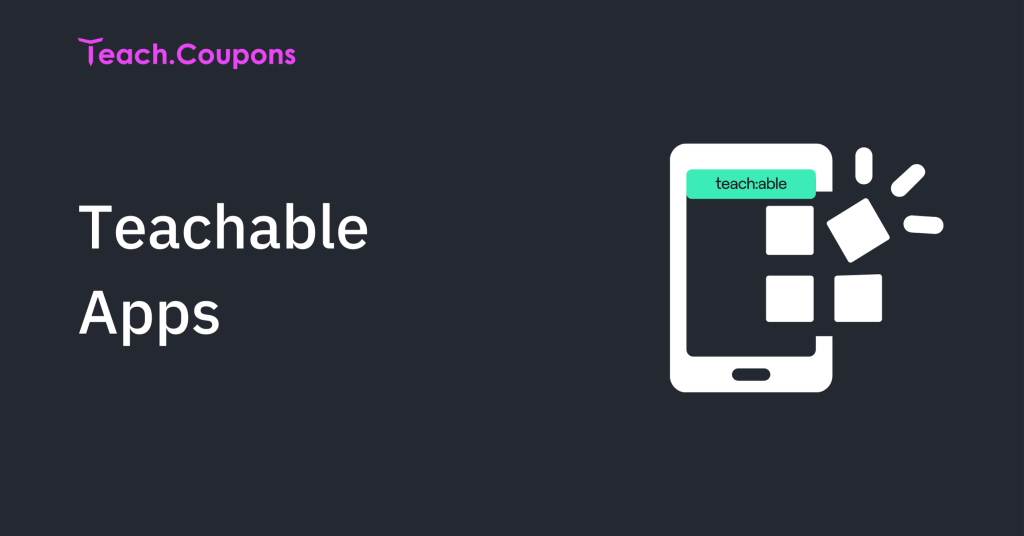Running an online course business often means juggling a mix of tools for email marketing, analytics, payments, and content delivery. But managing all these platforms separately can quickly become overwhelming.
Teachable integrations simplify that chaos. With over 20 built-in integrations and hundreds more accessible via Zapier, Teachable allows you to connect your favorite tools in just a few clicks, saving time and boosting productivity.
Whether you’re an educator, coach, or entrepreneur, these integrations help automate your workflow, improve student engagement, and scale your business faster.
In this guide, we’ll discuss the most powerful Teachable integrations and how they can elevate every part of your online course experience.
9 Best Teachable Integrations For Course Creators
To make your Teachable store truly shine, consider using these nine best Teachable integration tools:
| Sr. No. | Integration | Features | Key Benefit |
|---|---|---|---|
| 1. | Zapier | Connects Teachable with 3000+ apps | Unlimited customization options |
| 2. | ConvertKit | Automated email marketing with segmentation and tagging | Effective lead nurturing and student engagement |
| 3. | Google Analytics | Detailed website and course analytics tracking user behavior | Data-driven insights for course improvement |
| 4. | Zoom | Live webinar integration with automatic session syncing | Enhanced interactivity and real-time engagement |
| 5. | Stripe | Secure, flexible payment processing with multi-currency support | Simplified transactions and financial management |
| 6. | Mailchimp | email campaigns and sequences | Streamlined student communication and marketing |
| 7. | Facebook Pixel | Facebook ad conversion tracking and retargeting | Better ad performance and ROI for marketing |
| 8. | Circle | Dedicated community platform for discussions, announcements, networking | Engaged, connected students for enhanced learning experiences |
| 9. | ActiveCampaign | Advanced email marketing automation and CRM integration | Personalized communication and improved student retention |
Teachable comes with so many more integrations. Find out how much teachable pricing is here to enjoy these integrations on your account.
Here are the explanations for each integration, along with links to how to make these integrations:
1. Zapier Integration With Teachable
Zapier acts as a powerful connector, allowing you to automate workflows between Teachable and thousands of other apps. This integration enables you to create custom “Zaps” that trigger actions across platforms, streamlining your course management and marketing processes.
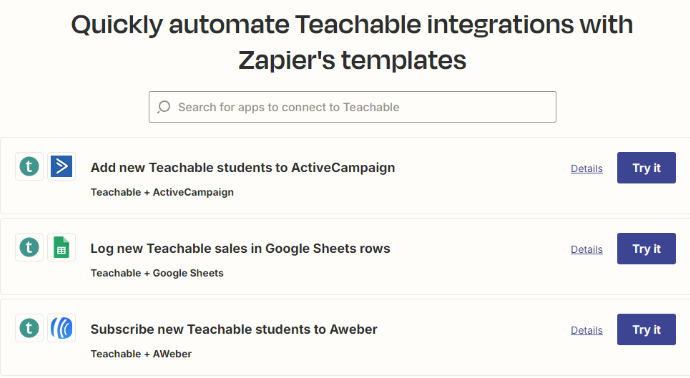
Find out how to integrate here: Zapier Integration with Teachable
2. ConvertKit Integration With Teachable
ConvertKit integration enhances your email marketing capabilities. It allows for automated sequences, targeted campaigns, and advanced subscriber segmentation. This tool helps you nurture leads, engage students, and boost course sales through personalized communication.
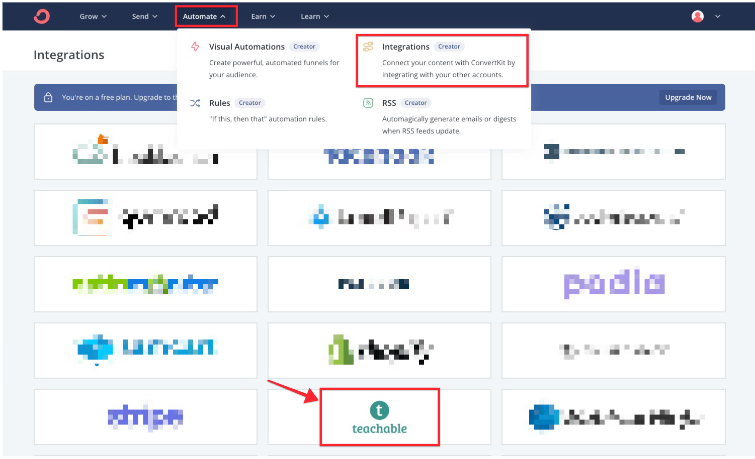
Find out how to integrate ConvertKit & Teachable
3. Google Analytics Integration With Teachable
By integrating Google Analytics, you gain deep insights into your Teachable site’s performance. Track user behavior, course engagement, and conversion rates. This data-driven approach helps you optimize your content, marketing strategies, and overall user experience.
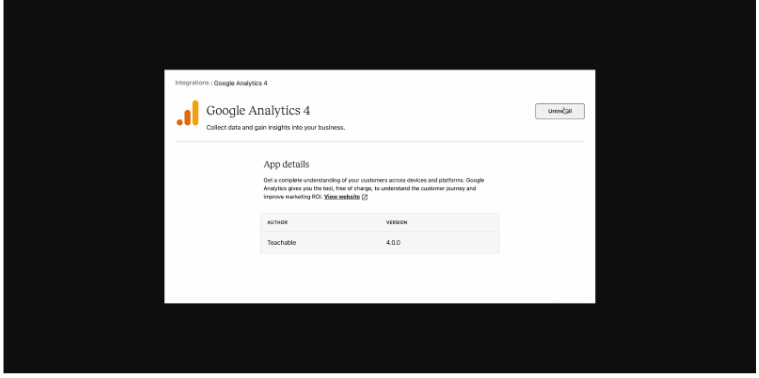
Find out how to integrate: Google Analytics Integration
4. Zoom Integration With Teachable
Zoom integration enables seamless live webinar hosting within your Teachable courses. It automatically syncs session details, provides easy access for students, and enhances interactivity. This tool is perfect for live Q&As, workshops, and real-time instruction.
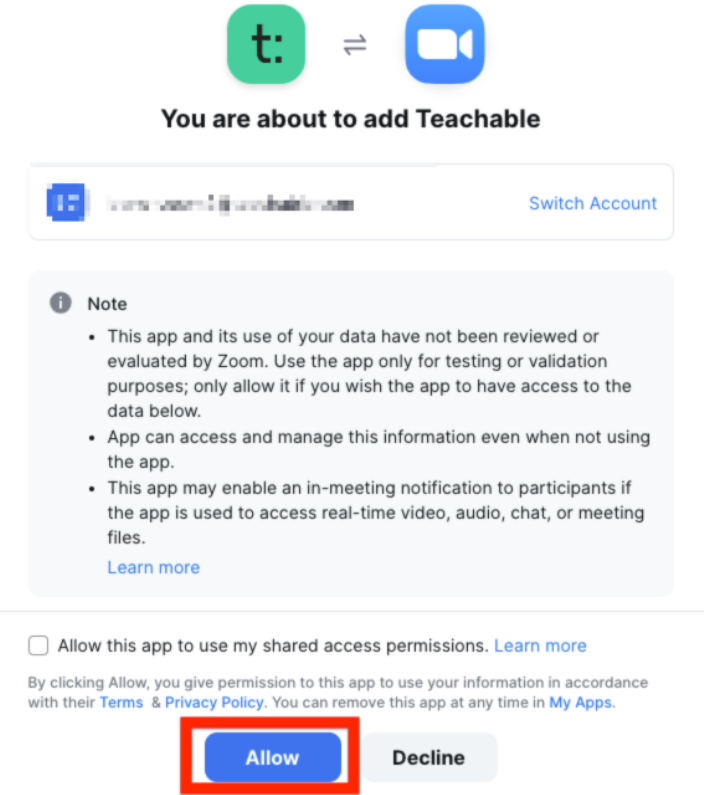
Find out how to integrate: Zoom Integration
5. Stripe With Teachable
Stripe integration offers secure and flexible payment processing for your Teachable courses. It supports multiple currencies, manages subscriptions, and handles refunds easily. This integration simplifies financial transactions and provides detailed reporting for your course sales.
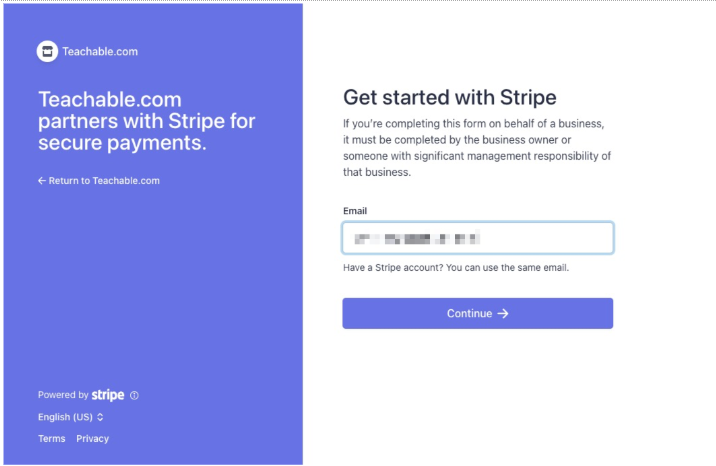
Find out how to integrate Stripe and other custom payment options on Teachable here
6. Mailchimp Integration On Teachable
Mailchimp integration allows you to sync your Teachable students with your email lists. Create targeted campaigns, automate welcome sequences, and manage your marketing efforts efficiently. This tool helps maintain consistent communication with your audience.
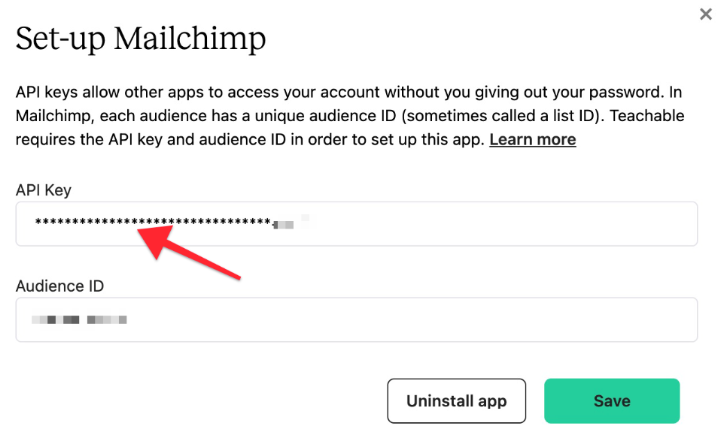
How to integrate: Mailchimp Integration with Teachable
7. Facebook Pixel
Facebook Pixel integration enables precise tracking of your Facebook ad performance. Monitor conversions, create custom audiences, and optimize your ad spend. This tool helps improve your marketing ROI and target potential students more effectively.
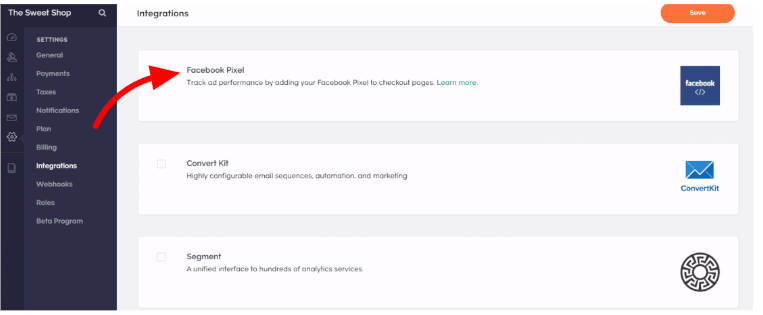
How to integrate: Facebook Pixel Integration on Teachable
8. Circle Integration With Teachable
Circle integration with Teachable allows your students to connect, collaborate, and engage in a dedicated community. By linking Circle to Teachable, you can create an interactive space for discussions, resource sharing, and networking. Although no direct integration exists, you can connect both platforms using Zapier or webhooks for seamless interaction.
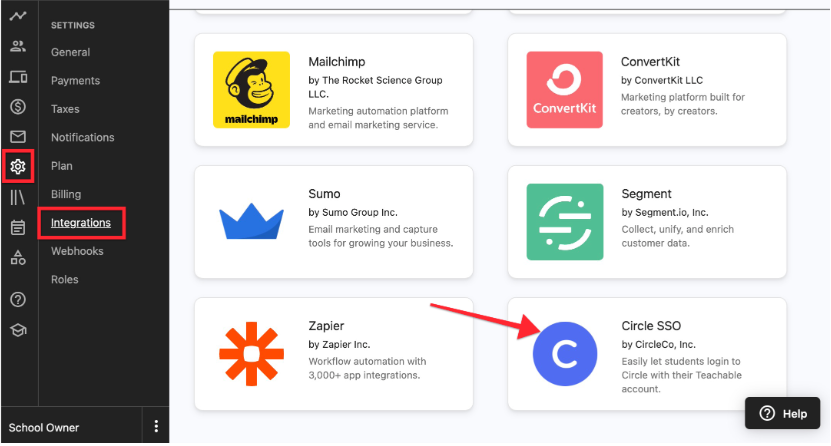
Find out how to integrate: Circle Integration with Teachable
9. ActiveCampaign Integration with Teachable
ActiveCampaign enhances your email marketing by providing advanced automation and CRM capabilities. Integrating it with Teachable allows for personalized communication, improved student retention, and streamlined marketing efforts.
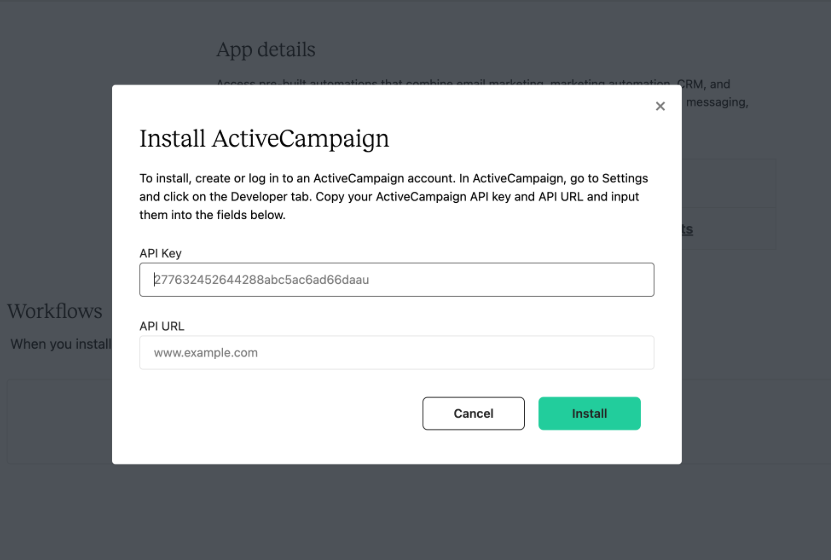
How to integrate: ActiveCampaign Integration with Teachable
Understanding Teachable Integrations
Integrations are vital for online course creators because they allow you to automate repetitive tasks, gain deeper insights into your audience, improve marketing effectiveness, and elevate the overall user experience.
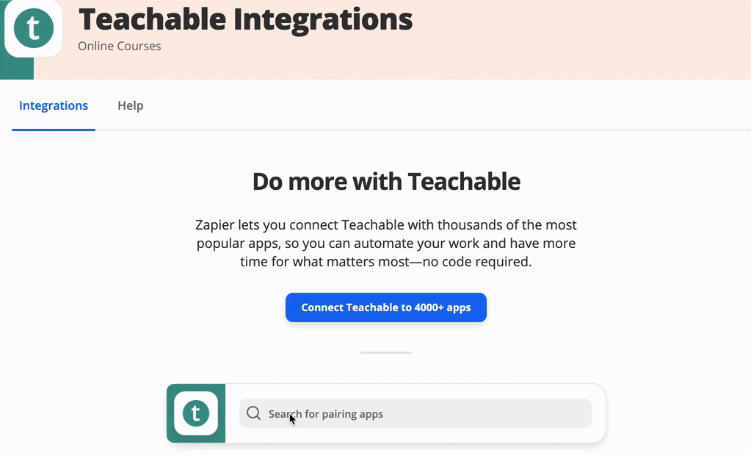
Here are a few integrations I use and the reason why I use them:
1. Email Marketing: ConvertKit or MailChimp for nurturing leads and communicating with students.
2. Analytics: Google Analytics for in-depth insights into your audience and course performance.
3. Payment Processing: Stripe for flexible payment options and seamless transactions.
4. Webinars: Zoom for live sessions and interactive workshops.
5. Community Building: Circle for creating engaged student communities.
6. Marketing Automation: Zapier to connect Teachable with your entire tech stack.
7. Sales Funnel: ClickFunnels or Deadline Funnel to boost conversions.
How To Set Up Teachable Integrations?
Before we begin, I would like to point out that some integrations may require a specific Teachable plan or additional subscriptions to third-party services.
Setting up integrations in Teachable is a straightforward process:
Step 1: Log in to your Teachable account
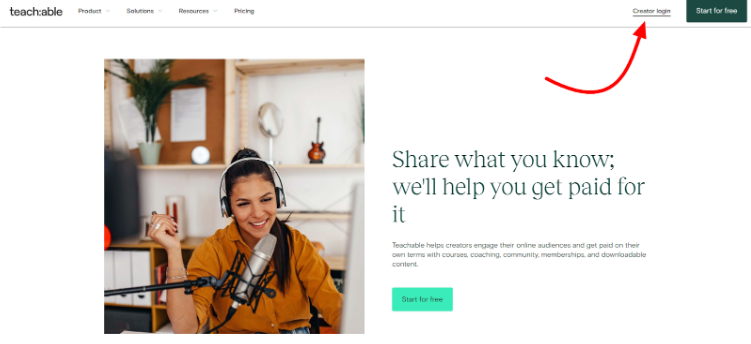
Step 2: Navigate to the “Settings” menu.
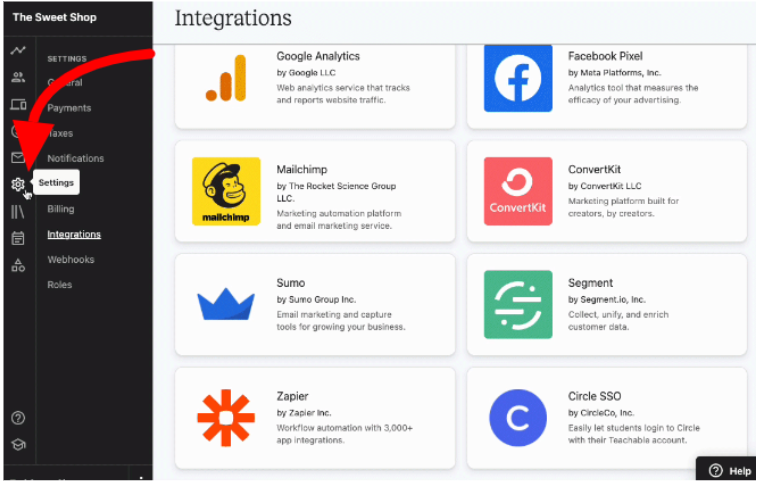
Step 3: Select “Integrations” from the left sidebar.
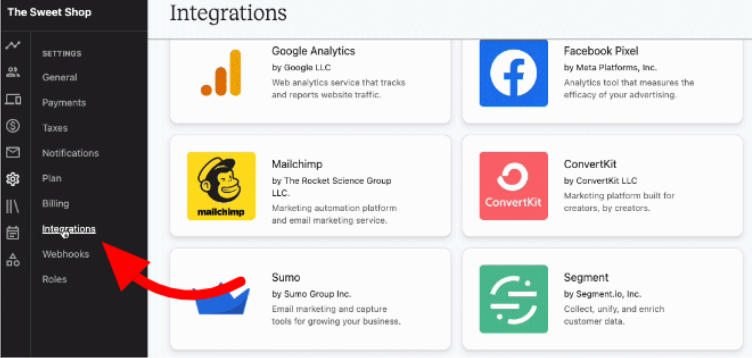
Step 4: Choose the integration you want to set up.
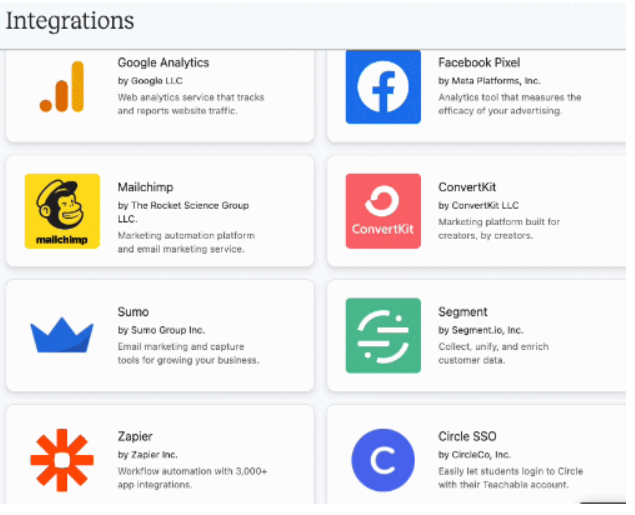
Step 5: Follow the specific instructions for each integration, which typically involve:
- Authorizing Teachable to access the third-party service.
- Configuring settings and preferences.
- Testing the integration to ensure it’s working correctly.
For detailed instructions on specific Apps & integrations, Teachable provides comprehensive documentation in its help center. The center includes step-by-step guides, video tutorials, and troubleshooting tips for each integration.
Get Teachable for less with the teachable Black Friday and Cyber Monday discounts here.
Benefits of Teachable Integrations
Here are the benefits of Teachable integrations, each summarized in one line:
- Streamlined Workflows: Automate tasks and connect tools for seamless operations.
- Enhanced User Experience: Create a cohesive and personalized learning environment.
- Improved Marketing and Sales: Leverage powerful tools to reach wider audiences and boost conversions.
- Data-Driven Decision Making: Gain deep insights for informed course and business improvements.
- Expanded Payment Options: Offer flexible payment methods for increased sales.
- Enhanced Content Delivery: Integrate diverse media for dynamic learning experiences.
- Improved Student Engagement: Build communities and personalize communication.
- Scalability: Easily grow your course business with adaptable systems.
- Competitive Advantage: Offer unique features that set your courses apart.
- Cost-Effectiveness: Utilize specialized tools without building custom solutions.
You can start your teachable free trial here and taste all these benefits.
Troubleshooting Common Teachable Integration Issues
Here are the solutions and preventive tips to help you with typical teaching integration issues:
1. Sync Errors: Ensure all services are up-to-date and try reconnecting the integration.
2. Data Discrepancies: Double-check mapping settings and data formats across platforms.
3. Performance Issues: Monitor the impact of integrations on your site’s speed and optimize as necessary.
4. Authorization Problems: Regularly verify and update API keys and access tokens.
Conclusion: Teachable Integrations Simplify Workflows And Enhance The Course Experience!
Teachable’s integration ecosystem offers solutions for nearly every aspect of running a successful online education platform, from marketing automation to advanced analytics.
Teachable integrations are the secret sauce that can elevate your online course business from good to great.
By connecting your favorite tools and automating workflows, you can focus on what truly matters- creating exceptional content and engaging with your students.
Don’t let the fear of technical complexity hold you back. Start exploring Teachable integrations today and unlock the full potential of your online course business.
FAQs
You can integrate Teachable into your existing website. Teachable offers a WordPress plugin for seamless integration, and you can also embed Teachable course content on other website platforms using custom HTML code.
Teachable provides developers with an API (Application Programming Interface) to create custom integrations. The API allows you to programmatically access and manipulate data related to your school, courses, and users.
Teachable offers a WordPress plugin that allows you to integrate your Teachable courses into your WordPress website easily. This integration lets you display course information, embed course content, and even process enrollments directly from your WordPress site.


